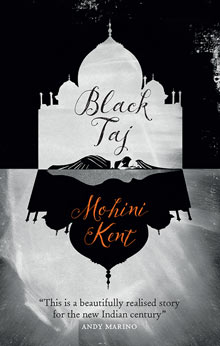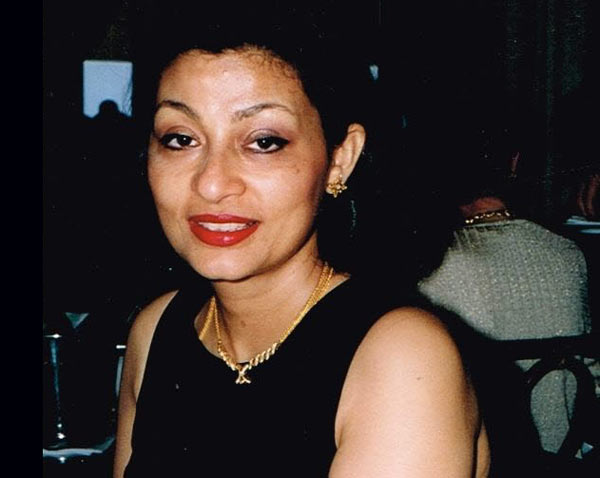NEW BOOK: Announcement by Hoperoad Publishing
Pub date: 31 March 2016
Hardback £12.99
ISBN: 978-1-908446-45-9
Fiction
Available on Hoperoad Publishing
Against a background of monsoons and heat waves, shanty towns and expensive bungalows, rich old women and angry young men, love and tradition, and religious conflict and social upheaval, lives will change forever.
It is 1993, one year after the destruction of the Babri Masjid Mosque in Uttar Pradesh by Hindu activists. Simi, a well-born young woman, has so far lived with privilege and certainty – but when the Mosque crumbles, so does the careful structure of her life. To the horror of her grandmother and the outrage of their friends in the riot-torn city of Atmapuri, she falls deeply in love with a Muslim doctor, Imran. Partition stands like a ghost between the star-crossed lovers. What will be their fate? And will India herself become the nation she was destined to be, open to all identities and communities . . .
‘Mohini Kent explores the effects of Partition and the social unrest, resentment, and religious conflicts in 1947 India. This is an important and provocative novel’
Mark Tully
‘Black Taj takes forbidden, unbiddable love, the staple of romantic fiction and uses it to tell a much deeper and terrible tale. The novel is both deeply pessimistic and highly optimistic’
Yasmin Alibhai-Brown
‘Gripping, humorous and ultimately a profoundly humane story about human frailty and prejudice’
Shomit Mitter
‘Mohini Kent is a gripping storyteller, Before you know where you are, you are deep into her novel’
Amit Roy, Telegraph India
‘A riveting read set against an intricate tapestry of love and religion in post-Independence India’
Anita Raghavan
Mohini Kent (Lady Noon) was born in India and arrived in the UK at the age of 21. After studying psychology, graphic design and film production, she became an author, journalist, film-maker and charity worker. She has written for India Today, The Times of India, The Tablet and BBC Radio; her directorial roles include The Ramayana and Curry Tiffin, with Ben Kingsley. She lives in London.
DUNIA MAGAZINE Q & A WITH THE AUTHOR
DUNIA MAGAZINE: Writing fictional novels is quite a digression from your background in journalism, is it not? How much did the one influence the other?
Mohini Kent: I am reader first, then a writer. I’ve read novels all my life, and story-books when I was a child.
Our minds dominate our lives, and helps to create who we are, and where we go.
Fiction gives me a home in different cultures, be it contemporary authors such as Marquez, Harper Lee, Annie Proulx, and RK Narayan writing about small-town India or Salman Rushdie creating a more visual language, or earlier authors such as Tolstoy. An 11th century Japanese novel I read created a whole new world, which was quite startling in its sexual references. ‘Life is a fiction of the mind’ by Maharishi Ramana, is one of the greatest spiritual sages of the 20th century.
I enjoy reading fiction, but it was hard work to write. Probably the hardest thing I’ve done.
Journalism did not really influence my writing fiction, except for the sheer fact of WRITING. It helped me to develop a fluency of writing.
There is no doubt the importance that religion plays, even in a subcontinent the size and population of India. Are interfaith marriages on the rise or decline in India, and how do you think this novel with contribute one way or the other in the dialogue?
Mohini Kent: Until the early 20th century, religion was a dominant force all over the world. Its power declined after World War II and major changes occurred in societies after that: feudal structures loosened their grip, education was more easily available, and cheaper travel opened up the world. India has always been a very spiritual country. Sri Aurobindo describes India as the Spiritual Heart of the World. Hundreds of spiritual seekers still live in solitude in the Himalayas, and others run ashrams. Daily religion practices are common. The difference, to my mind, is between spirituality and the ritualistic aspects of religions.
Interfaith marriages are slightly on the increase in certain segments of Indian society, from my observation. I have not seen any data to support this. However, I notice that English-educated youth are more inclined to select their own partners. At the same time, newspapers carry stories about ‘honour killings’ in villages. Inter-religious and inter-caste relationships are not countenanced there.
India a huge, diverse land and society with many races, religions, castes and communities.
My novel reflects attitudes at a certain level, and readers will relate to that.
Do you feel your writing on this subject is emboldened by the fact that you are able to step out of India and write this from Britain, or you are the least influenced by your current location?
Mohini Kent: I don’t think the fact that I live in London influenced my novel. I am closely connected with India too, visit several times a year, and run a anti-trafficking charity where we support projects in many different parts of India. The India I grew up in, and the family I was nurtured in, influence my values.
Could you share with us an aspect as your Indian culture that means the most to you and why?
Mohini Kent: The deep spirituality that runs as a constant stream in India is very inspiring. Whilst the cities are caught up in materialism, the Himalayas and ashrams scattered across India, even today, remind us that we are both body and soul. There has to be an inner journey and an outer journey in life.
It’s interesting that there will be an institute to study compassion in the UK. I am in contact with them. The study of compassion will, in time, be spread to all disciplines – business, healthcare, social work etc.
I am Global Envoy in the UK of the International Buddhist Confederation, and hosted a lunch for His Holiness the Dalai Lama last September in London. He spoke about ethics in business, since the invitees included the top British Indian business crowd.
Now that Black Taj is out, what next is in store for your readers?
Mohini Kent: I have written four books so far, and my book on Buddhist philosophy will be released in Delhi later this year. Titled: Nagarjuna: The Second Buddha. The Dalai Lama has given the Foreword to that.
I have in mind a novel about the Indian community in London,, but it’s just a twinkle in my eye at present!
—
ABOUT HOPEROAD
HopeRoad, set up in 2012, specialises in writers and writing from and about Africa, Asia and the Caribbean. Their aim is to give a voice to writers and stories that might otherwise be missed by the mainstream book trade. https://www.hoperoadpublishing.com/
Join mailing list for updates and monthly newsletters


